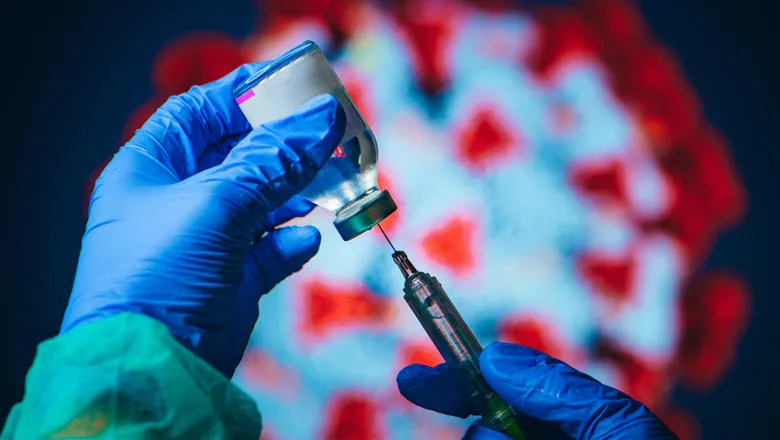A coronavirus vaccine could offer us a chance to get back on the road to “normal”. However, the vaccination programme will only be successful if people want to be vaccinated.
Joint first author Dr Louise Smith, from the NIHR Health Protection Research Unit for Emergency Preparedness and Response at King’s College London
27 November 2020
2 out of 3 people would have a Covid-19 vaccine
Scientists at King’s College London and Keele University have found that 64% of people would be likely to have a Covid-19 vaccination when one became available.

The online survey of 1,500 UK adults also reported that 27% were unsure if they would have the vaccination, and just 9% - fewer than 1 in 10 - reported that they were unlikely to be vaccinated.
The online cross-sectional survey was conducted by a research team from King’s College London and Keele University in collaboration with Public Health England, to understand the expected uptake of a future Covid-19 vaccine.
The researchers collected the data between July 14 and 17, 2020 and analysed associations between intention to be vaccinated when a vaccine becomes available, and socio-demographic factors such as age, race, ethnicity, and education, previous influenza vaccination, general vaccine attitudes and beliefs, attitudes and beliefs about Covid-19, and attitudes and beliefs about a Covid-19 vaccination.
Publishing their findings in the peer-reviewed journal Human Vaccines & Immunotherapeutics, the team identify several factors associated with likelihood of accepting a coronavirus vaccine. People who had been vaccinated for flu last year were more likely to intend to be vaccinated for coronavirus, as were older people, people with more positive vaccination beliefs and attitudes, and people who perceived a greater risk of Covid-19 to others.
She continued, “We found that almost two thirds of the general population said that they would be likely to be vaccinated for coronavirus when a vaccine became available to them. Intention to be vaccinated for coronavirus was associated with having had a flu vaccine in the 2019/20 season, having positive attitudes towards vaccination generally, and thinking that a coronavirus vaccine would be safe. This is similar to what we see for uptake of other routine vaccinations.
“Although there is still considerable uncertainty around the details of a coronavirus vaccination, it is encouraging that most people report that they would be vaccinated for coronavirus when a vaccine becomes available to them.”
The scale and impact of Covid-19 are such that when a vaccine becomes available, we need to ensure that uptake is maximised in order to contain the mounting social and economic costs associated with the virus.
Joint first author Dr Sue Sherman, from Keele University’s School of Psychology
She added, “Despite the pandemic nature and severity of Covid-19, high vaccine uptake cannot be assumed for various reasons, including something called the intention-behaviour gap. For instance, uptake of the H1N1 vaccine following the 2009 swine flu pandemic was poor in many countries.
“The highly contagious nature of Covid-19 means that once a vaccine becomes available, ensuring a good uptake will play an important role in reducing unnecessary deaths. In order to maximise the uptake of the coronavirus vaccine, campaigns to support vaccination programmes overall, including for other routine vaccination programmes such as the annual winter flu programme, will need to be in place.”
COVID-19 vaccination intention in the UK: Results from the COVID-19 Vaccination Acceptability Study (CoVAccS), a nationally representative cross-sectional survey – Sherman et al is published in Human Vaccines & Immunotherapeutics.
DOI: 10.1080/21645515.2020.1846397
For further information please contact Louise Pratt at louise.a.pratt@kcl.ac.uk

